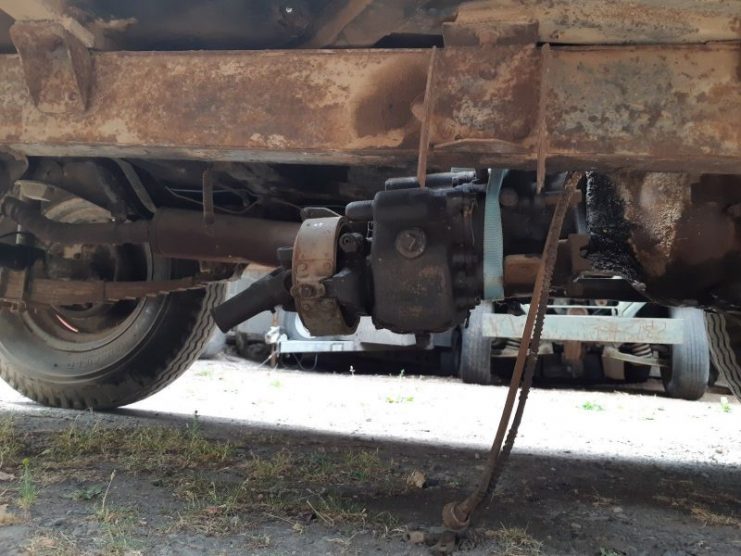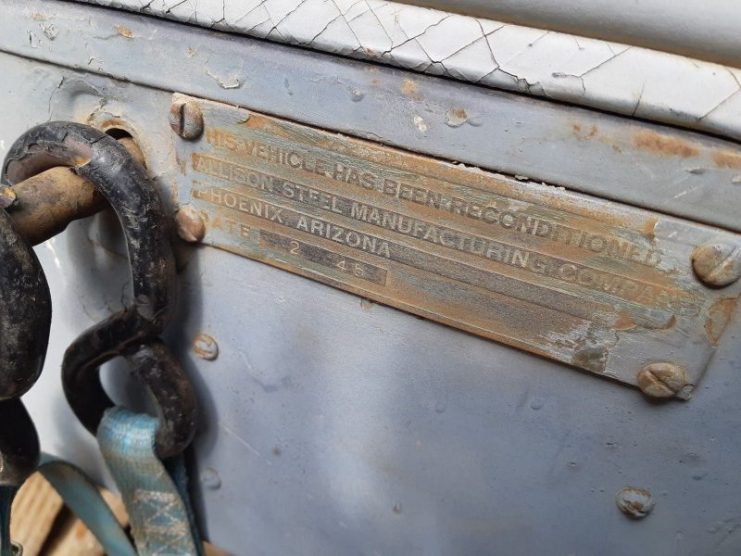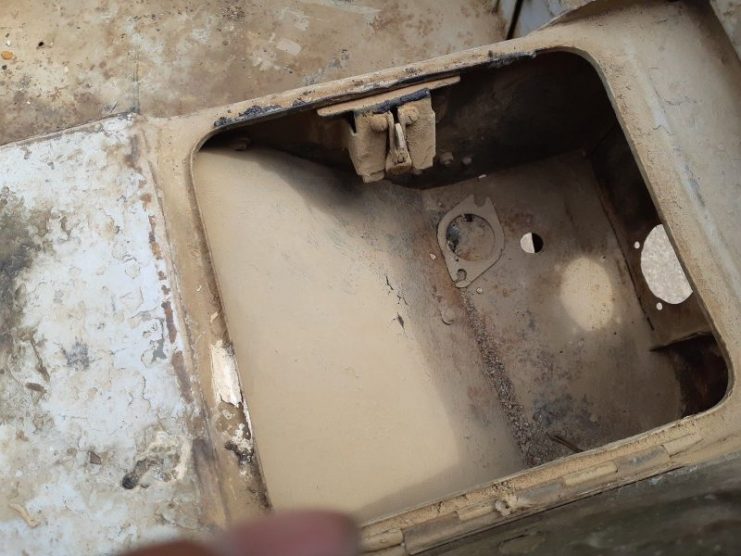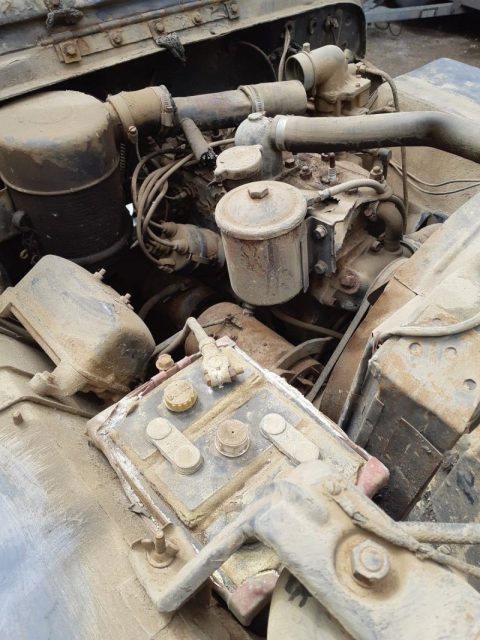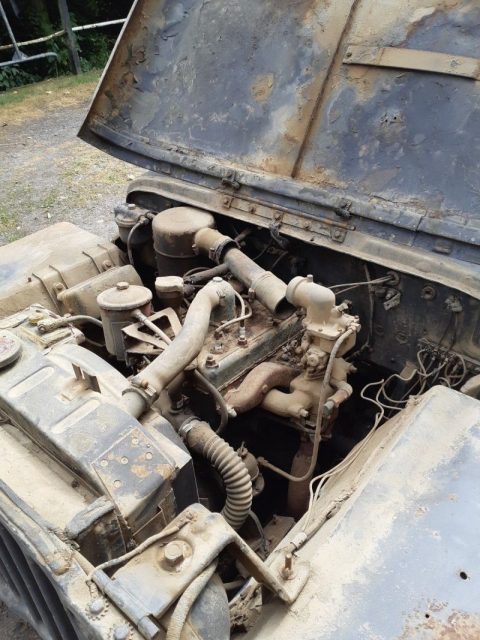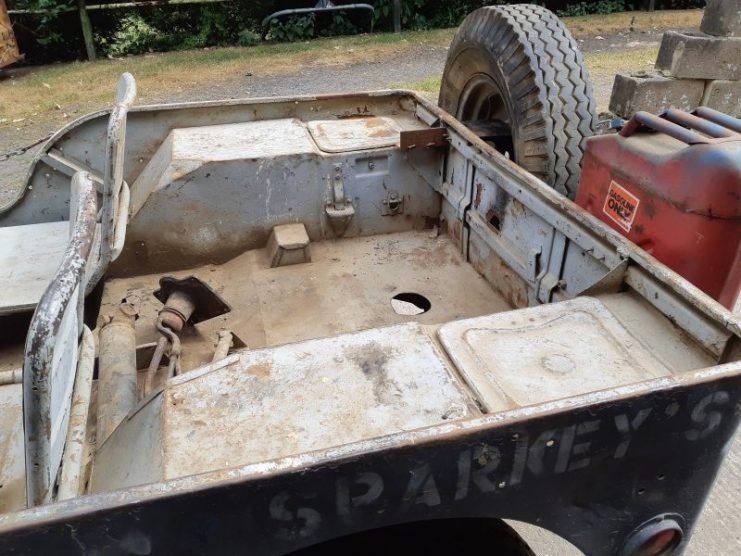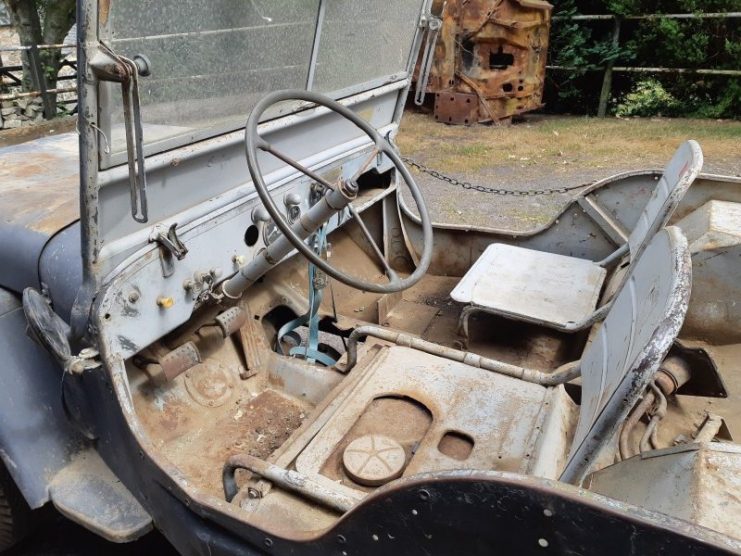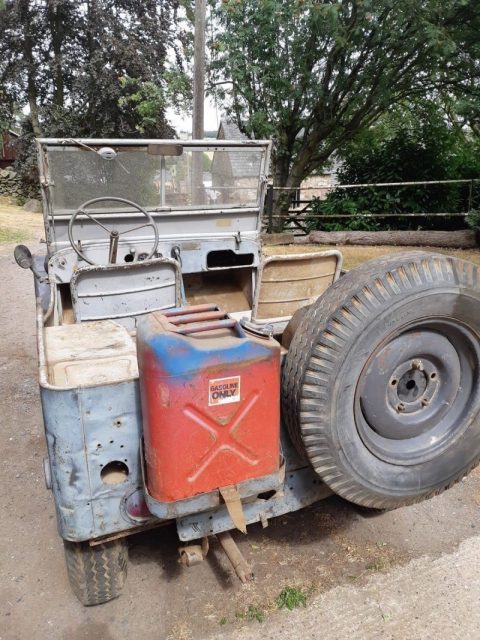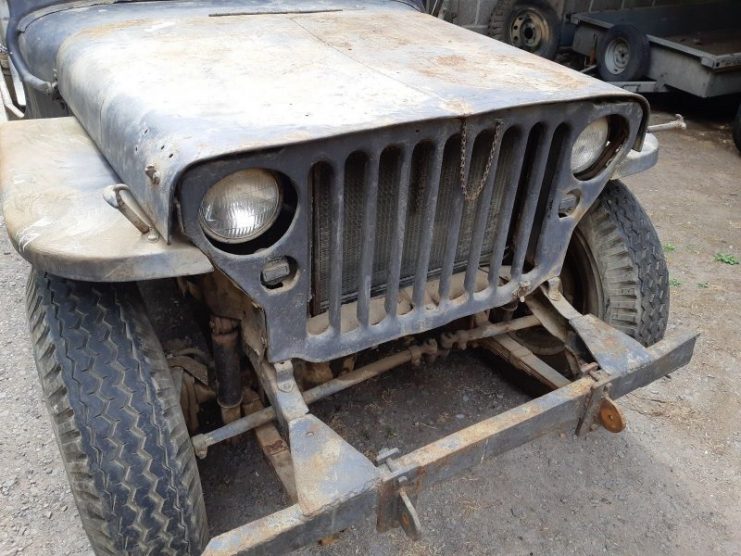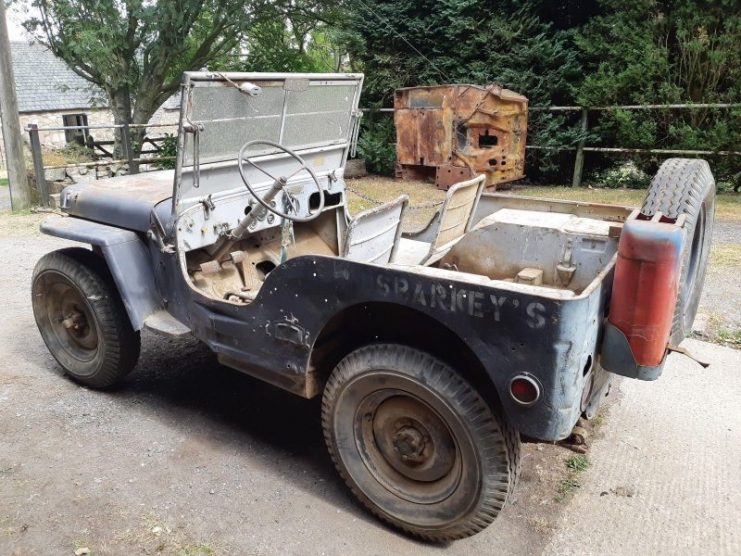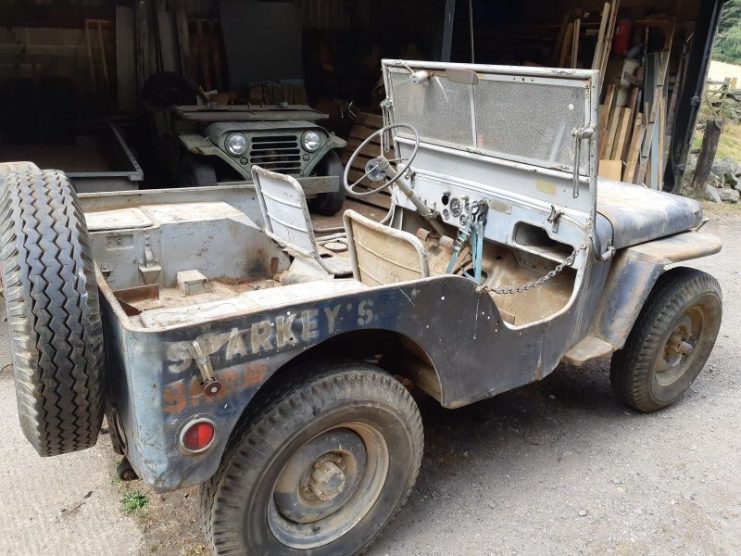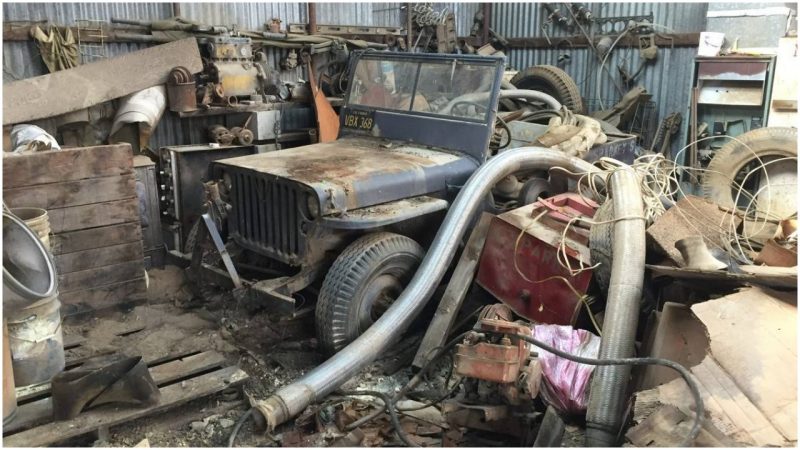1943 Willys Jeep GPW – a rare Jeep find stuck in a corner of a barn for over 50 years and this old Jeep has come from the US. As you can see in the pictures, it is a real gem. It has been stored out of the weather and presents a unique restoration project.
This particular Jeep is a rare combination of a Willys chassis built by Ford and not many were made this way as Ford ran out of chassis and they asked Willys if they could supply chassis for them.
It is loaded with “F” marked parts, the tub has not been taken of this Jeep and is all original except the engine. As it is a later model engine, the Jeep was rebuilt in the Allison reconditioning works in 1945 as it left service for the civilian market .
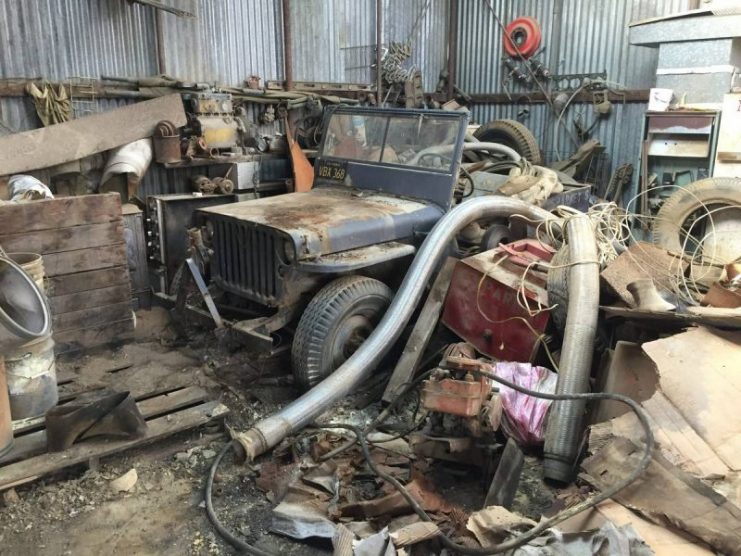
The story of the Jeep begins in the late 1930s, when the United States military was searching for a vehicle that was light, rugged and could travel over rough terrain. By the early 1940s, the Jeep’s design was complete, and the rest is history.
Scroll down for images
1. The first version of the Jeep was produced by the American Bantam Car Company, who won a bid between three companies. They were not the lowest bidder, but they believed they could produce a test model within the military’s tight time span of just 75 days. The vehicle was completed in time, and carried the name “Blitz Buggy”.
2. The United States military encouraged both Willy’s-Overland Motors and Ford Motor Company to build test models, as American Bantam Car Company lacked the production ability that both Willy’s and Ford offered.
Representatives from both companies watched and studied the vehicle as it was being tested by the military in October of 1941. The military claimed to own the designs and turned them over to both companies. In just a few weeks, both companies had test vehicles available. The vehicles had the names Willy’s Quad and Ford Pygmy.
3. In the end, all three companies were awarded the contracts. Each vehicle received a new name; American Bantam’s was named the “BRC 40,” Willy’s was named the “Willy’s MA” (Model A) and Ford’s was named the Ford GP.
4. The United States decided to choose one manufacturer, Willy’s-Overland Motors, to build the Jeep. Willy’s won the contract due to its engine being the more powerful of the three and, as such, an order for 16,000 vehicles was placed. These models were designated Willy’s MB (or, Model B).
5. There were over 360,000 of the Willy’s MB produced, making it the most popular Jeep made during the time. Ford produced over 270,000 of their Jeep variant in the same time span. In total, there were over 640,000 Jeeps built during World War II.
6. There were, in total, eleven different variations of Jeeps produced during World War II by the three companies.
7. The Ford GPW and Willy’s MB designs are very similar. The only way to tell the difference is to locate the name plates on the vehicles.
8. The Jeeps were simple in design. The 1941 Willy’s MB had a push button start, literally. To start the Jeep, you had to push a button on the floor. There were no keys.
9. These Jeeps had no doors and came equipped with a cloth roof. The windshield that is pictured above was an afterthought by Willy’s, who added it after seeing Ford’s design during the bidding stage. The windshield was versatile, as it could be put down if necessary.
10. World War II Jeeps had a three-speed transmission. There were three gears, as well as reverse. This worked well with the 4 cylinder engine. This Engine was capable of producing 60 horsepower at 4000 RPM, which was good by the standards of the time. The Willy’s Jeep was capable of doing 45 miles per hour and included four-wheel drive.
So now you have some facts lets have a look at the details of the pretty cool barn find that is for sale in eBay
